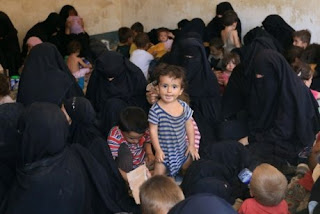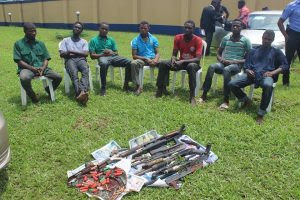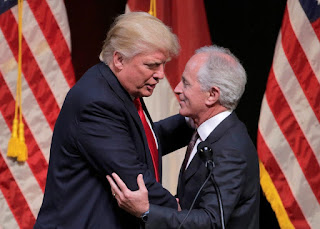ISLAMIC STATE;AUSTRALIAN AUTHORITIES WORRY ISIS FIGHTERS' FAMILY POSE SECURITY THREAT
What to do with any family members of Islamic State (IS) group fighters is shaping up as a major problem for Australian security agencies, as the wives and children of foreign fighters are being found in Iraq and Syria.
Key points:
* Government says some Australian foreign fighters have families in conflict areas
* UNICEF Australia's Amy Lamoin says it's a very complex situation for the Government
She says we need to consider security but also "the rights of children to return"
Iraq is holding more than 1,000 family members of suspected IS foreign fighters in a desert camp south of Mosul.
Levi West, a lecturer in terrorism and national security at Charles Sturt University, said while there are no "official" figures, there are about 150 Australian foreign fighters left in Iraq and Syria, some with young families.
Mr West said many security issues are now being raised, including just who poses an internal threat.
"At what age do we assess the children to be too much of a risk, given that they may have been exposed to and substantially influenced by — if not committed to — an ideological framework that is going to cause an enormous problem when we bring them back here," he said.
IS wives face an uncertain fate
Iraq authorities are trying to work out what to do with more than 1,000 children and wives of former Islamic State fighters.
Mr West said there is also the psychological damage.
"There is an enormous cost associated once they are back because they are going to need substantial treatment for things such as post-traumatic stress disorder and so on," he said.
The Federal Attorney-General's Department said it knows there are some Australian foreign fighters who have families in the conflict zones.
"Our priority is to keep the Australian community safe from those who seek to do us harm," it said.
"It is essential that we identify and mitigate any potential risks. Each child is considered by law enforcement and security agencies on a case-by-case according to the risk they may pose."
UNICEF Australia's director of policy and advocacy, Amy Lamoin, said it is a very complex situation for the Government.
"It's a balance of interests and it's important that we consider security as a part of this picture, but we also need to consider the rights of children to return," she said.
"For them to be provided with the right support to recover, resume a regular life, education and be contributing members of their communities.
"If you look at children's lives, it's likely they had no choice in the matter.
"They are first and foremost children before they should be considered a threat."








Comments
Post a Comment